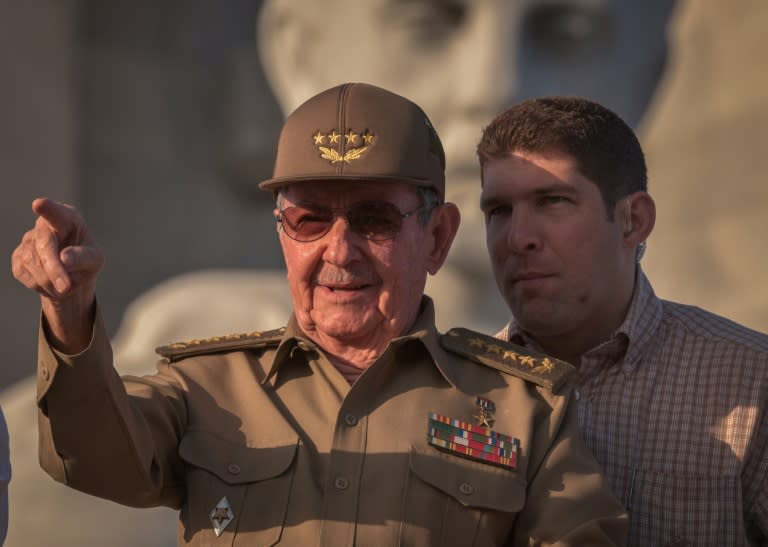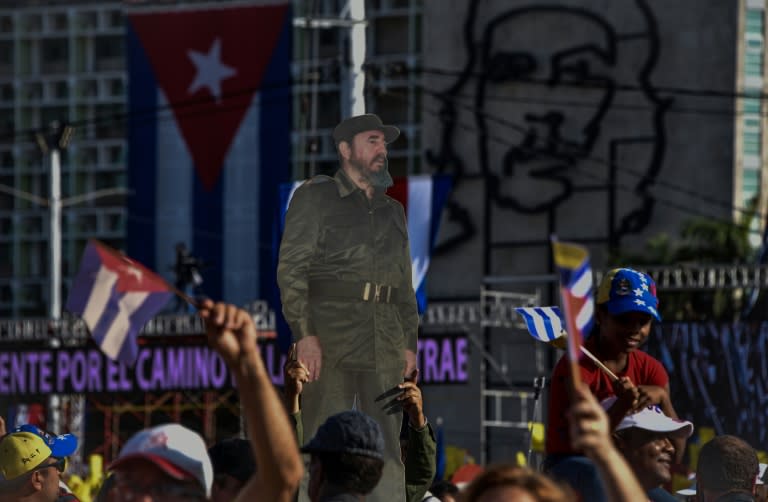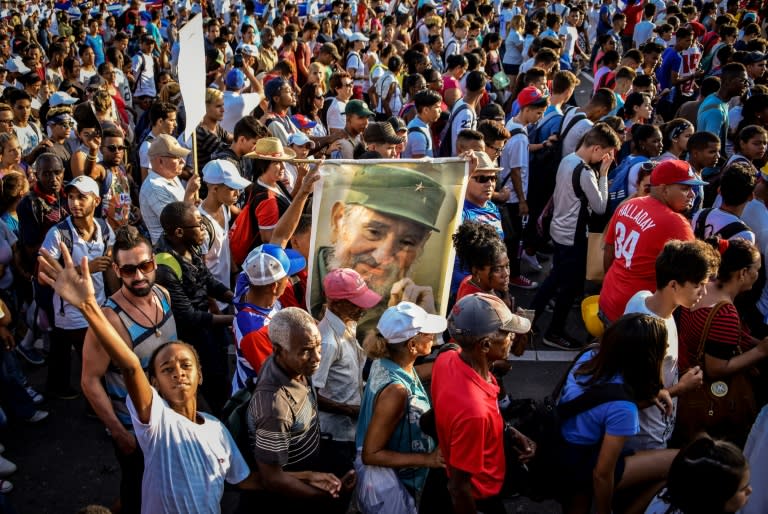Cuba stages last May Day parade under Castro
Millions of Cubans rallied in May Day parades Monday, the last to be overseen by President Raul Castro -- and the first without his late brother and revolutionary predecessor Fidel. The rallies filled Havana's Revolution Square and other spots across the country in a sea of red, white and blue national flags and giant portraits of Fidel Castro. Traditionally a day of protest and defense of workers' rights worldwide, the May Day rally in communist Cuba is unusual in being a march in support of the authorities. The government still employs 70 percent of the five million workers on the island of 11 million people. Fidel Castro died in November and Raul, 85, has said that he will step aside in February 2018 after 12 years in power. "I don't think Cubans are ready to accept another president," said Mariana Gonzalez, a 28-year-old economist, at the march in Havana. "People will accept one grudgingly at first until he shows he is capable." - After Castro - Raul Castro has been cautiously opening up Cuba's state-run economy and strengthening its foreign relations. He re-established diplomatic ties with the United States in 2015. But Monday's parade had the feel of the end of an era. Raul Castro attended in his trademark green military cap and uniform, but did not make a speech. It is not clear who will take his place next year as president. Most rumors suggest it will be Miguel Diaz-Canel, 56, vice-president of the State Council. - Political uncertainty - Castro's supporters on Monday were hopeful that the transfer of power will be smooth. He is expected to retain considerable influence since he will remain leader of the governing Communist Party. "The conditions for continuity are there," said retiree Elier Dominguez, 68. "There is only one party." Despite ministerial experience and party credentials, Diaz-Canel is seen as lacking a support base in the military. "There is very high uncertainty about 2018," said Pavel Vidal, a former official of Cuba's central bank and an academic at Colombia's Javeriana University. "One could expect a process of continuity" of Raul Castro's reforms, he added, "but not at the same speed." - Venezuela factor - Cuba's economic fortunes depend largely on another country that saw May Day marches on Monday: Venezuela. Monday's parade in Havana voiced support for Venezuela's leftist government which is facing deadly unrest as the opposition protests against President Nicolas Maduro. Venezuela sells cut-price oil to its leftist allies in Havana. Cuba is currently in recession, dragged down by its ally's economic crisis. Analyst Andrew Otazo of Washington-based Cuba Study Group told AFP that Cuba has started looking to other oil exporters in case the Venezuelan government collapses. - Show of support - Despite the rapprochement under former US president Barack Obama, his successor Donald Trump has reiterated concerns over the Cuban government's human rights record. It is accused of repressing political dissent. Monday's march was a show of confidence by its loyal supporters, however. "No one can beat Cuba," said demonstrator Alejandro Matos, 35, a civil defense employee. "Even though Fidel is no longer here, there is Raul. And later there will be his successor."




